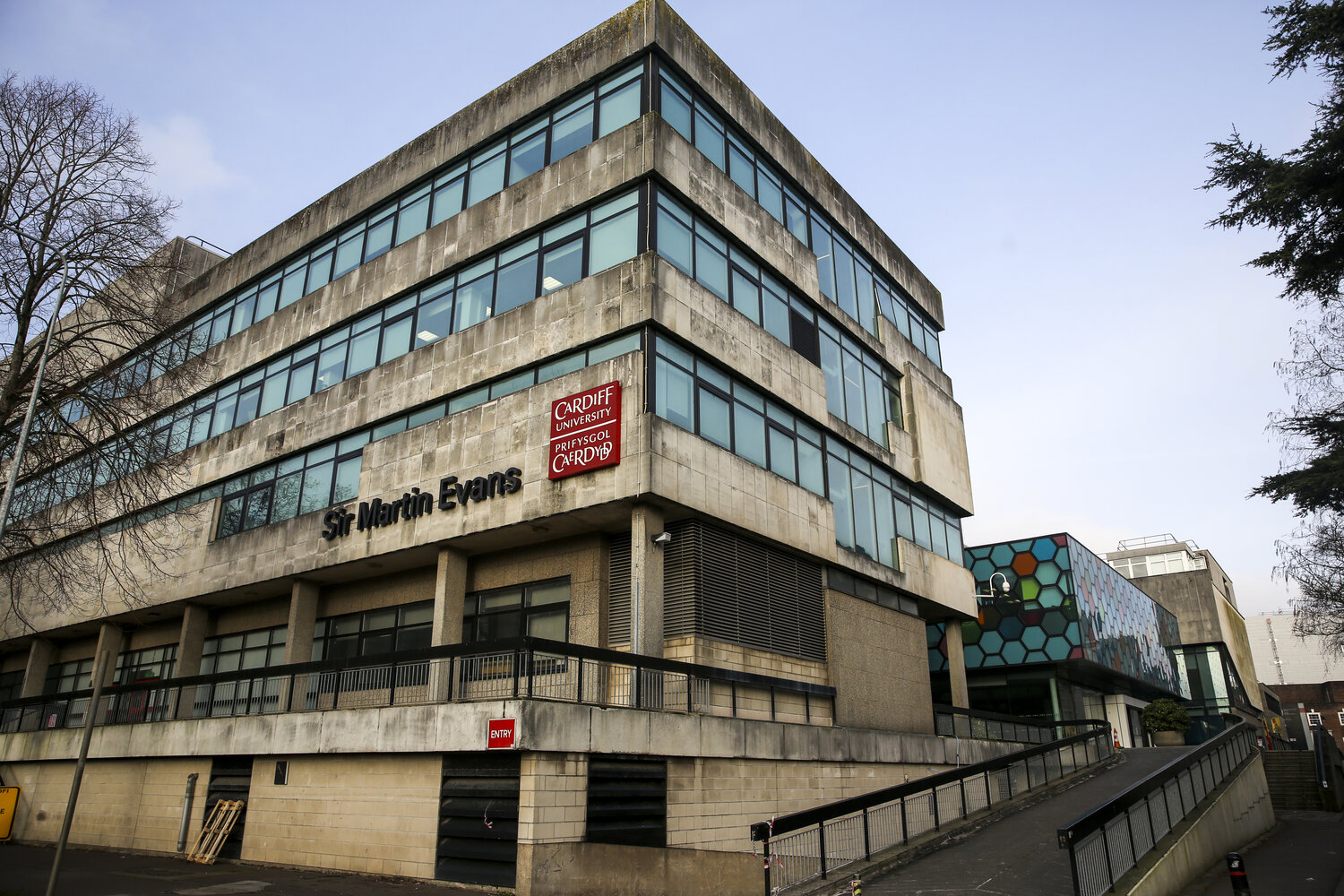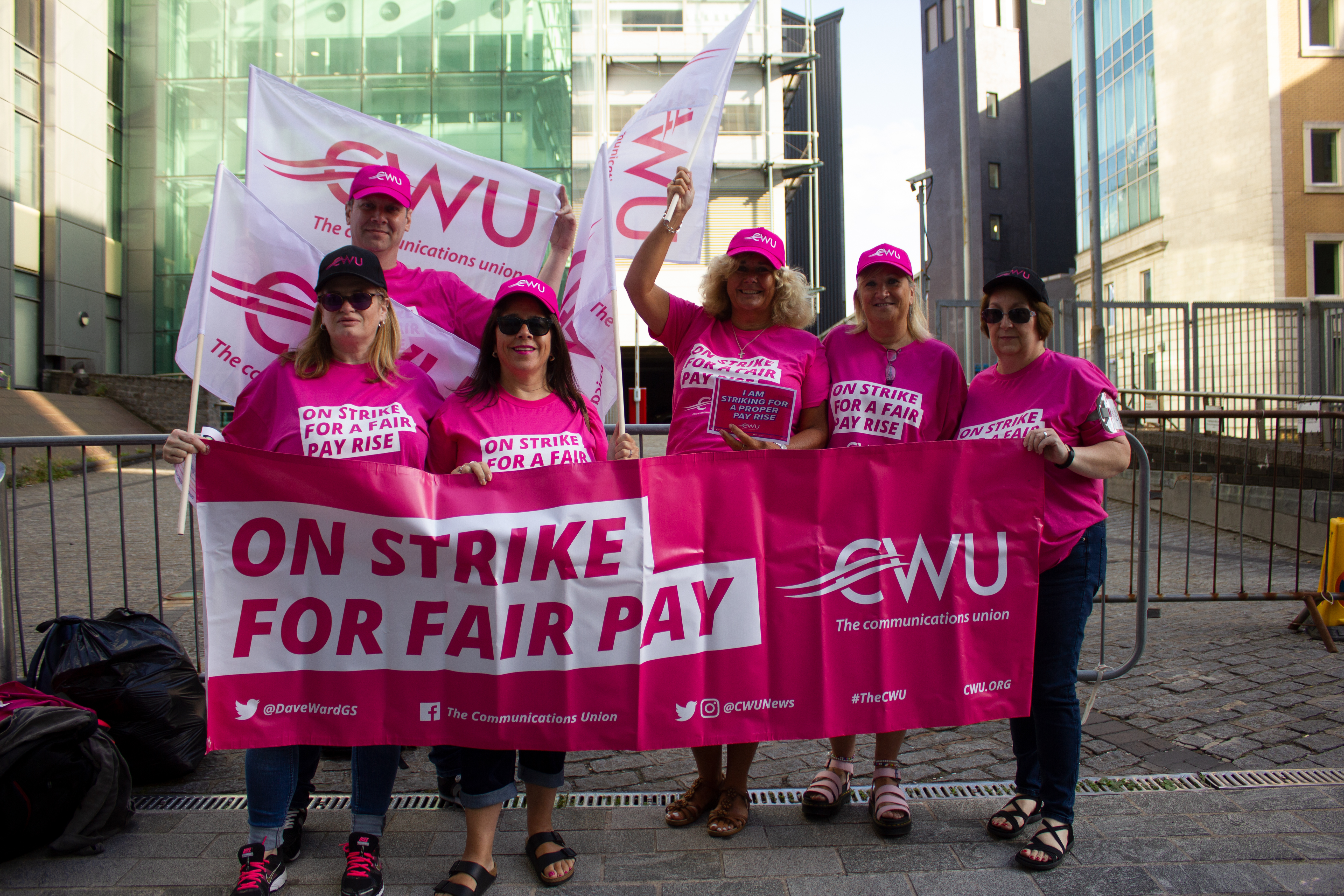
Broken But Not Silenced: Workers Reveal The Shocking Use of Casual Labour at Wales’ Top University.
RIDICULED FOR RAISING COVID SAFETY CONCERNS, NOT PAID IF YOU’RE SICK, NOT INFORMED IF A STUDENT HAS COVID AND FEARFUL YOU’LL LOSE YOUR JOB IF YOU SPEAK OUT: WORKERS AND UNIONS SAY CARDIFF UNIVERSITY’S USE OF CASUAL LABOUR IS A SCANDAL AND HAS ALLOWED IT TO EXPLOIT ACADEMICS AND PUT THEM AT EVEN GREATER RISK IN THE PANDEMIC. HERE, THREE WORKERS TELL THEIR STORY.
Words & Images by Tom Davies
Workers at Cardiff University have come forward to reveal shocking accounts of mistreatment by management during the Coronavirus pandemic. The series of claims, taken during lengthy interviews, shows the level of exploitation faced by so-called casual workers, who are treated like second class employees at the prestigious Russell Group institution.
The three workers, all of whom are women, describe a system of unfair employment arrangements, no proper contracts, unsafe working environments, and a general unwillingness from management to listen to their problems. As well as the three staff interviewed, voice.wales was also given testimonies from other workers which back up their claims.
One worker says their colleague was called ‘disloyal’ by management for raising safety concerns, whilst another says they are afraid to say no to face-to-face working for fear of losing their job as their contract can be so easily terminated.
Workers say they were given no choice to return to face-to-face teaching in September 2020, despite rising Covid cases and some having underlying health conditions that make them more vulnerable to the virus.
In addition, two workers say staff were not informed when students in their cohort tested positive for Coronavirus. Others describe having to struggle to get PPE and being dismissed when raising concerns over ventilation in rooms. Hourly paid workers, who say they are effectively on zero-hour contracts, also receive no sick pay, meaning they are left without money if they are off work due to Covid or any other illness.
One of the three unions representing Cardiff University workers, the University College Union (UCU), says the use of casual labour is rife, and estimates that around 44% of academic staff are on precarious contracts, but the figure is closer to 60% if postgraduate tutors are included.
The union says that “people are going from terrified to desperate” and that many are “being asked to take risks that are either unnecessary or unacceptable considering their personal circumstances.” A strike ballot over workers being forced into face-to-face work has now been launched.
The university disputes the claims, saying they take the welfare of staff and students incredibly seriously, and that they have followed Welsh Government guidelines, as well as investing in testing, PPE and workplace safety throughout. They said they “needed to respond quickly to the ever changing pandemic” and “have worked continuously to communicate with staff.”
They also say they don’t use zero-hour contracts but instead offer “variable hour contracts which are agreed with individual members of staff, in advance.”
But workers who spoke to voice.wales say they are effectively on zero-hour contracts, and are treated as disposable employees by the university, which sees them as easily replaceable.
The UCU says that workers are given contracts which guarantee only two hours of work per year, so whilst not technically zero-hour, they are often described as such. The union says it has been pushing the university to stop employing people in such a precarious way, and the pandemic has illustrated how damaging they can be.
Three workers at Cardiff University have agreed to share their experiences, but expressed concerns that there would be repercussions from University management if they were named in the article. To protect the identity of those that have come forward, their names have been changed.

Alice works at Cardiff University under a precarious working arrangement; she says that staff with pre-existing health conditions were not consulted about returning to face-to-face teaching.
“It was assumed that staff would return without question or complaint, those with health concerns that could make them more vulnerable to COVID-19 were not consulted”
She says that if staff did speak out against going in, they were directed to higher management which is often more intimidating.
“We feel that we don’t have any right to say anything to management about how we feel, because we may be worse off if we do…I’m scared they’ll cut my hours, or simply just fire me,” Alice explains.
She goes on to tell me that there have also been major issues with health and safety. Workers were told that they would be provided with PPE, a risk assessment for the building and hand sanitizer and cleaning products in every classroom.
However, upon returning, they only received a face mask and gloves as PPE. Some did not receive their risk assessment until after teaching had begun and some classrooms were not provided with hand sanitizer and it was left to the lecturers to disinfect the room.
Alice says that she also had concerns about the ventilation in teaching rooms:
“The ventilation system for the classrooms is done by air conditioning. So I was very worried that the air would be recycled and not properly ventilated. I asked and they could not give me details about it, they only gave me a reassurance that health and safety said, ‘it was fine’.”

Maria works for the university on a casual basis. She says that staff like her feel “like they are collateral damage” and says that she wasn’t provided with adequate protection from the virus after being told she had to come into work.
“I didn’t feel safe with the PPE they provided, and I had to buy my own,” she says.
In addition to the safety issues, Maria explains how the contracts given to non-permanent, casual and ‘zero-hour’ staff allow for greater exploitation of workers.
“Contracts are changed each year without our consent or knowledge, next year I might have more or less hours, it’s not up to us, it’s like a surprise every year what our contracts are going to be,” she says.
“Some staff have been stuck on these zero-hour changing contracts for over five years and just can’t get out of them…They know they’ll find more staff that will accept the contracts, because this economic situation we’re in is bad for everyone.”
Maria explains how this has had a serious effect on her mental health, but people are scared to bring up mental health issues with the university in case they are made redundant. She says the situation isn’t helped by the fact that the university’s mental health support service has been outsourced in recent years, making it more difficult for staff and students to access support.
Maria then makes the disturbing claim that staff were not even told when a student in their cohort tested positive for Coronavirus, even though track and trace was supposed to be in place.
“We were not even informed about the track and trace system for Coronavirus,” she says. “So [we] couldn’t know if students were positive or self-isolating.”
This claim is also backed up by an anonymous testimony from a postgraduate researcher, who we are calling Alex:
“My friend has been terrified when teaching face-to-face, particularly on occasions when students texted her to say they received a positive Covid-19 test, only a few days after being in the classroom. [But] the university never notified her of positive cases among her students, so it is always down to students’ goodwill to be tested and let her know. Self-isolation in those cases is problematic too because you simply don’t get paid if you don’t work.”
They go onto reveal the extent of the issues around their working conditions. Unlike some other UK Universities, postgraduates at Cardiff University do not have employment contracts, instead they work under a framework agreement that offers no sick pay or union representation.
They are paid one hour of preparation time for lessons; however many lecturers assert that this is not nearly enough time to prepare, and say it usually takes over three hours to prepare for a single lecture.
Alex suffers from a medical condition that is unpredictable and debilitating, making it difficult to teach all the time. The university does not give sick pay to these workers, so they must either work whilst unwell or cancel the lesson, which would mean no income.
“This makes me feel terrible because it’s not fair to the students and it isn’t fair to me either,” they write. “I need this extra money and I really enjoy teaching, it’s helpful for my career and I take a lot of joy from it, but I’m considering not doing it anymore and pick up a part-time job somewhere else because the instability is just too much.”
Testimony given to voice.wales from another worker, and UCU rep, describes how one of their colleagues was called ‘disloyal’ for raising safety issues with management.
“This month, one of my colleagues contacted me about their workplace. Their workplace was not COVID secure. They were ridiculed and called disloyal for raising concerns and consulting their union. The stress resulted in sickness absence. Their experience has resulted in them leaving the University. I find it all very disappointing!”

Jess is another member of staff that agreed to share her experiences on the condition of anonymity.
She says that in early summer last year, the university predicted a huge drop off in student numbers which never materialised. In some cases, there are even higher than average student numbers.
The union successfully fought back against management proposals to cut pay through a number of measures, such as freezing pay increments. Jess also says that the university said that it planned to ‘let go’ of around 1200 workers at this time, which included mainly temporary and agency workers on casual working arrangements.
“These aren’t just teaching staff but catering and cleaning staff that the university relies on so much.”
Cardiff University say they “do not recognise this figure” and that workers have left the University during the pandemic “in line with the provisions of their contracts of employment.”
But Jess says that workers are the ones that have been made to bear the brunt of the pandemic.
“I think what’s going on at the moment is an incredibly muscular approach to management, management seem to be making a lot of decisions with very little consultation. And it seems increasingly that the financial or commercial nature of the organisation is dictating everything.”
Even before the Coronavirus pandemic, Cardiff university was having financial issues. It was revealed in a report in Wales Online in 2019, the university was £180 million in debt. Despite this huge deficit, the university is still engaged in large scale building projects.
Jess claims the university is now even more in debt because of this.
“Cardiff is trying to reduce the cost of staff due to building projects, which are funded on debt. So a £300million bond was borrowed. That’s now been extended by another £100million.”
She says that there needs to be more regulation and governance over what the Vice Chancellor is allowed to do. “We’ve got £400million worth of debt in bonds, and yet there doesn’t seem to be any concern for the potential failure of a massive University.”
While the university continues with these huge building projects, workers say they are being forced to buy their own equipment and resources for working from home. Some staff have had to purchase printers, new laptops and change their Wi-Fi provider to cope with the strains of teaching from home. They say the university has not offered to reimburse them for this, or told them to claim tax relief, but workers earning less than £12,500 a year are not eligible, meaning the lowest paid miss out.
Jess explains why the university increasingly relies on casual staff:
“It’s all down to the cost basis. The benefit of hourly paid staff is that you don’t have to pay them in holiday time. You don’t have to pay them when they don’t teach. They are a resource that are exploited by the universities, because management is obsessed with cutting costs, that’s really what it comes down to.”
She tells me how the general public’s misconception of universities has been exploited by universities to become more focused on profit than education. “I think the public’s view of universities are these kinds of quite nice, crusty old institutions, with the nice old lecturer as chancellor,” she says. “What the pandemic has demonstrated is they’re a cutthroat, commercial organisation. They’re ruthless. The way they’ve treated staff and students has been absolutely appalling.”

Jess links the situation in the context of the huge pay gap between the majority of workers and senior management.
“So even during difficult times while we haven’t had any paid pay raises, the Vice Chancellor has been having them year on year, quite substantial pay raises that have all been gone through and been approved by the council. I think he had around a £30,000 pay increase, to almost £300,000, last year.”
Academic staff now find themselves caught between management and students, as workers find it increasingly hard to provide students with the education they have been promised. As Jess explains:
“For academics, we feel that students don’t always get what they deserve in the system, which is no fault of ours. It’s because the universities try to make more money by increasing the number of students and reducing the number of staff. So we feel caught between student expectations and the management system that just wants to make more money.”
She goes on to explain how many lecturers have had to take on the role of mental health support, with a lot of students struggling to learn remotely and turning to lectures for help that they cannot get from the university.
“There’s lots of issues; some of the students can’t afford the technology they need to work from home. And what’s being done about it? Nobody can answer. This doesn’t even cover some of the serious mental health issues,” Jess says.
Many workers feel that the reason they were asked to come back to teaching in September last year was mainly to get the next cohort of students in, by signing them up at open days for the 2021-2022 academic year. Jess says it “was all done to entice students.”
“Cardiff university is run as a company,” Jess says. “And a company’s main objective is to create profit. If it wasn’t about the money, they wouldn’t have asked students to come back to face to face. Everything’s done for the money, everything looks nice, everything looks safe. But it’s not.”
In a statement, Cardiff University says that it takes the health and safety of staff and students extremely seriously have acted in accordance with Welsh Government and Public Health Wales guidance, and their approach has been to work with staff in a “supportive manner using the “All Wales Covid-19 Workforce Risk Assessment” tool.”
They also say they have made a “multi-million-pound investment in creating a Covid-19 secure campus with enhanced cleaning and hygiene measures, alongside strict social distancing.” They say that an in-house asymptomatic screening service is also available to workers.
They say that “staff making eligible purchases can be reimbursed subject to the University’s financial regulations.. any member of staff who believes that they should be reimbursed should raise their concerns through the appropriate University channels.”
“We have done everything possible to keep staff and trade union colleagues updated throughout the pandemic. We have liaised extremely closely with Public Health Wales and we are not aware of any concerns expressed by staff in this area. Our approach has been to work with our staff/student community, including our recognised trade unions, in a supportive manner.”
In a statement, the UCU said:
“Cardiff University management repeatedly claims to take the health and wellbeing of its staff extremely seriously and the pandemic would have been a good time to stand by those words. We know of many colleagues who are being asked to take risks that are either unnecessary or unacceptable considering their personal circumstances. However, management refuses to empower workers with a choice, claiming they can’t make a public statement that no one will be coerced into working face-to-face on campus because they believe appropriate procedures are already in place and such a statement would imply that this coercion is currently happening. Their own staff surveys have continually revealed lack of confidence in management and staff’s concerns about raising issues with their managers. People are going from terrified to desperate and levels of anger are growing. We urge the University management not to let this dispute escalate any further and to act now. This situation is regretful and unnecessary. While mediation discussions are ongoing and UCU still hopes this dispute can be resolved through that, the potential for industrial action is now very real.”


